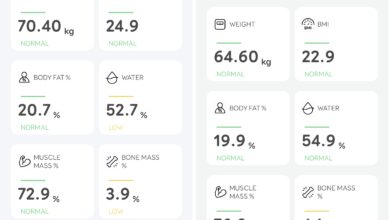OnePlus X vs Lenovo Vibe S1
The OnePlus X is the first mid-range mobile from OnePlus. Much like the OnePlux X, Lenovo Vibe S1 also boasts about elegant design and aesthetic construction. These mobiles are mid range mobiles and would appeal to anyone who is looking to buy a stylish and compact mobile. Both these mobiles are very similar when it come to hardware specifications. So here is a comparison between these two mobiles.
Price
The Vibe S1 is priced at Rs 15999 while the OnePlus X is priced at Rs 16999. Both these mobiles are exclusively available from Amazon in India. The Vibe S1 is on open sale, while the OnePlus X is an invite based system. While invites are available in plenty, the system is still a hassle.
In the Box
Interestingly, the OnePlus X is the first mobile that ships with a back cover and a screen guard. The screen guard film is pasted on the mobile out of the box. Lenovo has been shipping screen guard films and back cover for almost all their mobiles and the same holds good for Vibe S1 as well. However the Vibe S1 has a transparent hard back cover which adds elegance to the design and the TPU back cover on the OnePlux X, spoils its looks but gives better grip to the mobile. Both these mobiles don’t have earphones bundled along.
Design
Both the Vibe S1 and Onyx OnePlus X have glass back and metal rims. The OnePlus X has a flush flat back and the metal rims have ridges to aid grip. The S1 has curved back glass and aluminium metal rim. It looks very classy but both the mobiles are slippery in the hand. The Onyx version of the OnePlus X is a fingerprint magnet while the while color S1 does not show fingerprint. Both these mobiles looks stylish and premium. They appear to be solidly built. But on a practical usage, these slippery mobiles are easy to be dropped and glass construction adds to the problem. You would want to use a case with these mobiles and the clear hard back case along with the Vibe S1 gives the OPX a slight marginal edge.
| Lenovo Vibe S1 | OnePlus X (Onyx) | |
| Dimensions | 143.3 x 70.8 x 7.8 mm | 140 x 69 x 6.9 mm |
| Weight | 132 g | 138 g |
Display
The Amoled display on the OnePlus X beats any IPS LCD panel. The LCD panel on the Vibe S1 is not very bright. The display looks slightly warm and the ambient light sensor is buggy. Overall, the super bright and vibrant AMOLED display on the OnePlus X beats Vibe S1’s display.
Hardware and Performance
| Lenovo Vibe S1 | OnePlus X (Onyx) | |
| Chipset | Mediatek MT6752 | Qualcomm Snapdragon 801 |
| CPU | Octa-core 1.7 GHz | Quad-core 2.3 GHz Krait 400 |
| GPU | ARM Mali T760 MP2 | Adreno 330 |
| Card slot | microSD, up to 128 GB using hybrid SIM slot | microSD, up to 128 GB using hybrid SIM slot |
| RAM | 3 GB | 3 GB |
| Internal Memory | 32 GB | 16 GB |
In terms of muscle power, both these device are armed with similar specs. But the OnePlus has the tried, tested and recommended Snapdragon 801 processor. The Vibe S1 has 32 GB of internal storage and both these mobiles have microSD card compatibility with the hybrid SIM slot, which doubles as nano SIM slot or microSD card on the second slot. The all the bench mark scores also give the OnePlus X the upper hand, except for the Antutu and Geekbench multicore test. Benchmark test are not reliable beyond certain extent and they don’t give you the real story.

| Vibe S1 | OnePlus X | |
| Antutu | 45650 | 41354 |
| Basemark X | 13887 | 18381 |
| Velomo Multicore | 1417 | 1758 |
| Velomo Metal | 1071 | 1513 |
| Basemark OS | 967 | 1207 |
| Quadrant | 15298 | 22827 |
| Geekbench Single core | 811 | 908 |
| Geekbench Multicore | 4135 | 2601 |
But in real life, I found that these devices have a head to head performance. While both these device show frame drops while playing graphic intensive games, the better GPU on the OnePlus X gives you a better gaming experience. In terms of handling the respective UI, both these devices are smooth and fast. I am not going to be gaming all day, but for my day to day activity, the Vibe S1 has got better and powerful performance.
Camera
Both the mobiles have identical camera specifications
| Lenovo Vibe S1 | OnePlus X (Onyx) | |
| Primary | 13 MP, phase detection autofocus, dual-LED flash | 13 MP, phase detection autofocus, Single LED flash |
| Secondary | Dual front facing 8 MP + 2 MP | 8 MP
|
The OnePlus X has a faster focusing system. The white balance is just about right and the colors are bright and vivid. It feels a bit saturated but yet it remains within the pleasing limit. It has deep black levels. The HDR mode in OnePlus X effective and the images manage to remain. The camera UI is very simple and easy to find different settings. It can shoot slow motion videos, but there is no control over frame rate. It supports recording Full HD videos.
The Lenovo Vibe S1 has the same phase detection system, but it is not fast and it is inaccurate. The white balance is always on the colder side, but there is option to control it in the settings. The colors are washed out and under saturated. The HDR mode shots looks very unnatural. The Camera UI has a lot of options and the settings are always found multiple levels under the UI layer. Its supports Full HD videos, but lacks slow motion or time lapse.

The huge differentiator here is the dual front facing camera. The OnePlus X has a 8 MP front facing camera and it does a decent job for selfies. Vibe S1 goes a step further and adds a 2 MP module along with the 8 MP sensor to calibrate the depth of focus. The dual camera set up gives you with a bunch of crazy tricks. You can blur the background for a great looking selfie or you can totally cut your selfie out and place it in another other image of your choice. This feature would be an appealing factor for many, especially for the selfie crowd out there.
Both the mobiles don’t have manual controls for camera and in the auto mode, they dont have fast shutter speeds. Both have average camera setup, but Vibe S1 has a slight edge with its dual front camera setup, for the selfie fans.
Software
The Vibe S1 runs on Vibe UI skinned on top of Android lollipop and the OnePlus X runs on Oxygen OS skinned on Android Lollipop. The Oxygen OS offers close to pure android user experience. It has very little additional features apart from the gesture controls. The Vibe UI offers a few tricks up its sleeve like scheduled power on and off, secure zone, power manager and a few gesture based controls. Both the UI are fast and smooth and runs without a glitch on the hardware. It boils down to your own personal preference on the software user experience.
Battery
Its a tie with the battery. OnePlus X has 2525 mAh while the Vibe S1 has 2500 mAh non-removable Lithium polymer battery. Both these mobiles lasted for a day on my normal usage.
Verdict
Going with the gadgetdetail tradition, we had a vote of opinions among our team members. I voted for the Vibe S1, because I like the design and form factor of this mobile. It has a good style presence and it is priced at Rs 15999. Deva, Rounak and Amar wouldn’t mind paying the extra Rs 1000 for the superior processor and guaranteed OS updates from OnePlus X.










